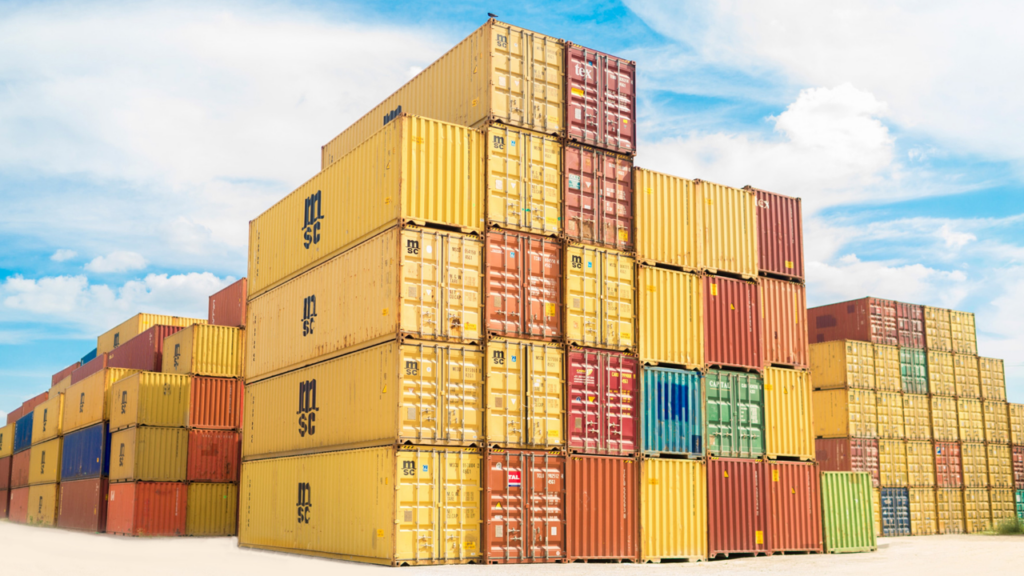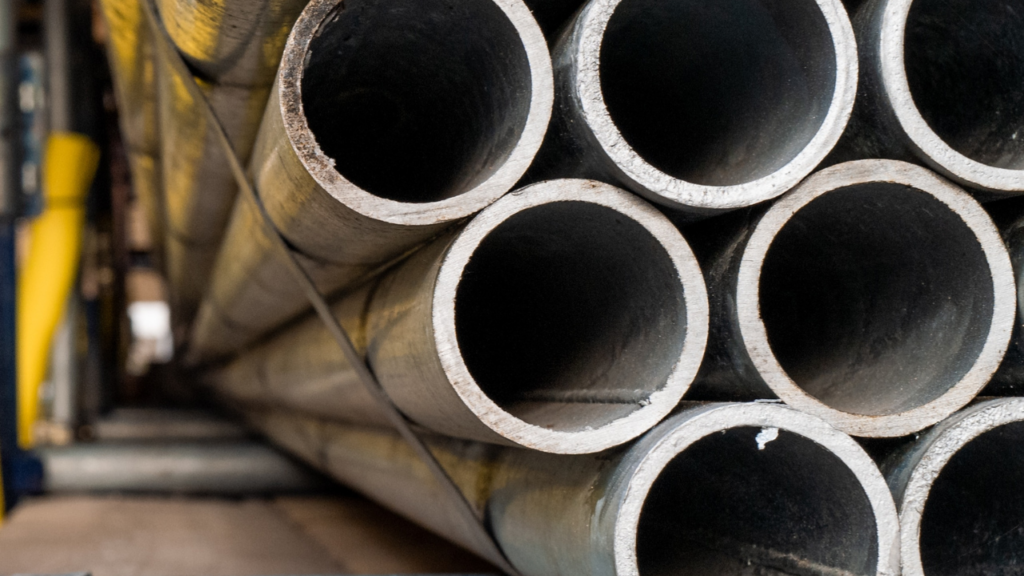Paper Bag Petition, Inorganic Arsenic Levels, Recession and Steel Exemption.
Your weekly All-Ways round-up of supply chain news.

AD/CV Case Against Paper Shopping Bags Alleged in Recently Filed Petition
On May 31, a filed petition alleges that paper shopping bags imported from nine countries are being sold in the US at prices that are below the fair value. However, bags imported from China and India are reportedly benefiting from countervailable subsidies. The claimed average dumping margins are as follows:
Cambodia – 44.29% to 221.36%
China – 133.80% to 324.24%
Colombia – 65.04%
India – 22.05% to 88.56%
Malaysia – 173.38%
Portugal – 26.71% to 204.54%
Taiwan – 44.76% to 50.13%
Turkey – 12.51% to 45.29%
Vietnam – 63.67% to 128.81%
Bags with handles of all types with a width of at least 4.5 inches and a depth of at least 2.5 inches are covered in this petition. They are classifiable under HTSUS 4819.30.0040 and 4819.40.0040.
Excluded from this petition are -
➡️ Multi-wall sacks and bags
➡️ Paper sacks or bags with flat paper handles that are of a 1/6 or 1/7 barrel size
➡️ Paper sacks or bags with die-cut handles, a standard basis paper weight of fewer than 38 pounds, and a height of fewer than 11.5 inches
➡️ Shopping bags with non-paper handles made wholly of woven ribbon or other similar woven fabric that are finished with folded tops or for which tied knots or t-bar aglets (made of wood, metal, or plastic) are used to secure the handles to the bags
➡️ Gift bags intended for retail sale that are physically bundled into the saleable unit prior to importation such that each bundled unit is composed of no less than three and no more than thirty individual bags
The Department of Commerce and the International Trade Commission will then assess whether to launch AD duty and injury investigations, respectively, on this product. These proceedings come with strict statutory deadlines.
FDA Finalizes Guidance
A final guidance for the industry entitled "Action Level for Inorganic Arsenic in Apple Juice” was just made available by the FDA. Issued in a draft in 2013, the final guidance identifies the action level of 10 parts per billion (ppb) for inorganic arsenic in apple juice. This is in line with the FDA’s goal of reducing environmental contaminant exposure in foods that babies and young children commonly consume.
While a lot of the samples tested for the amount of inorganic arsenic in apple juice achieved a level below 3 ppb and 5 ppb, some apple juices on the market are testing at levels above 10 ppb. The FDA has decided that an action level of 10 ppb is attainable by all.
The FDA hopes that the 10 ppb action level encourages manufacturers to take steps to reduce levels of inorganic arsenic in apple juice. While the decision is non-binding, the FDA will continue to monitor the situation and take enforcement action if deemed necessary. Lowering arsenic levels is better for public health so it’s expected that the FDA will revisit this as part of its “Closer to Zero” action plan.
How it Occurs
Foods grown, raised, or processed in certain environments may cause arsenic to be present. While arsenic can be found naturally in soil, air, and water, it also occurs because of certain pesticides, and pollution from mining, fracking, and coal-fired power plants.
Arsenic exposure is linked to cancer, diabetes, adverse birth outcomes, and cardiovascular and neurodevelopmental effects
FDA Action
It is not possible to entirely remove arsenic from the environment or from the food supply. Therefore, the FDA sets action levels when a level of a contaminant is unavoidable, to inform the industry of the level of contamination above which the FDA may regard certain foods as adulterated. Action levels do not establish a permissible level of contamination where it is avoidable.
- Federal Register Notice announcing the availability of the final guidance
- Guidance for Industry: Action Level for Inorganic Arsenic in Apple Juice
- Arsenic in Food and Dietary Supplements
- Environmental Contaminants in Food
- What You Can Do to Limit Exposure to Arsenic
- What You Can Do to Limit Exposure to Arsenic and Lead from Juices
- Help Protect Children from Environmental Contaminants: Healthy Food Choices for Your Baby Aged 6-12 Months
Peak Season in Recession
Good news!
According to a leading transport analyst, the effects of a US economic recession on industry verticals will differ but it may not cause a major decline in freight markets.
Even though a US recession is highly probable, retailers destocking could mitigate some of the effects on container shipping and freight demand later, according to Senior Freight and Transportation Logistics Analyst, Bloomberg Intelligence, Lee Klaskow.
“We are in a freight recession right now, [but] we could have freight growth and still be in a technical economic recession, that's not unheard of,” he stated. “So, even if we do go into a recession, I don't necessarily think it means doom and gloom.”
The Bloomberg Terminal consensus claims that there’s a 65% chance that a recession will occur in the US.
“I think we’re going to be in a technical recession sometime over the next 18 months, but I don't necessarily think that it's going to be a recession that's going to be felt by all people all the time,” Klaskow added.
Usually, the third quarter is peak season as retailers stock up for the holiday season. But the pandemic disrupted the normal trajectory of shipping demand.
“I think we're going to have a more normal peak season,” he said. “And when I say peak season, I'm not saying like a triangle angle kind of demand spike. I’m talking more of a hump kind of seasonal increase in demand, and then it slowly comes back down.”
Destocking is already in full effect for some retailers. But even static inventories don’t mean that retailers will not import fresh stock.
“Coles have said that they were able to decrease their inventories by I think around six percent, but then you have Footlocker that's saying their inventories are still too high,” he continued. “I don't think that we can paint a wide brush, and say that, ‘Oh, the inventory issue is behind us’.I think [inventories] are still relatively high. But I do think that they're doing a good job at destocking and the stuff that they need for the peak season isn't necessarily the same inventory that they have. So even companies with high inventory levels are going to need seasonal products to make sure that they have what the customers want when they want it.”
Extended Temporary Suspension of Section 232 Steel Duties
A Presidential Proclamation was signed on May 27, 2022, to suspend Section 232 steel duties for Ukraine for one year. Now, a year later, the US has decided to extend that for another year in support of the Ukrainian people because of the unjust war going on.
“Over the last year, the United States has provided a much-needed market for the steel that Ukraine is able to export. In doing so, Americans are directly supporting the people of Ukraine, many of whom rely on Ukraine’s steel industry for their economic well-being,” said Secretary of Commerce Gina Raimondo.
The USA will extend the temporary suspension of all tariffs on Ukrainian steel under Section 232 of the Trade Expansion Act of 1962 for one more year. “Thanks to President Biden’s leadership in signing this Presidential Proclamation, today’s announcement is a signal to the Ukrainian people that our commitment to them remains unwavering in the face of Russia’s aggression,” Secretary Raimondo continued.
Steel is one of the most important industrial sectors for Ukraine and this exemption allows Ukrainian steel mills to continue to operate.




